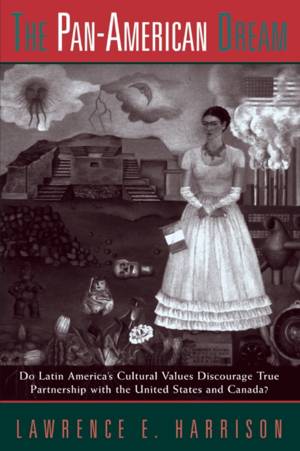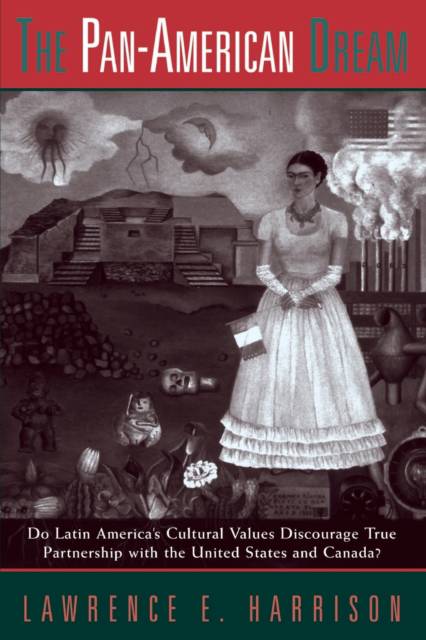
- Retrait gratuit dans votre magasin Club
- 7.000.000 titres dans notre catalogue
- Payer en toute sécurité
- Toujours un magasin près de chez vous
- Retrait gratuit dans votre magasin Club
- 7.000.0000 titres dans notre catalogue
- Payer en toute sécurité
- Toujours un magasin près de chez vous
The Pan-American Dream
Do Latin America's Cultural Values Discourage True Partnership with the United States and Canada?
Lawrence E Harrison
Livre broché | Anglais
102,45 €
+ 204 points
Format
Description
The initiative of Presidents George Bush and Bill Clinton to forge a Western Hemisphere community has been staggered by Mexico's economic and political crisis. Is this latest grand design for the hemisphere destined to follow John Kennedy's Alliance for Progress and Franklin Roosevelt's Good Neighbor Policy into the cemetery of frustrated Pan-American dreams? The United States and Canada are prosperous first-world countries with centuries-old democratic institutions; Latin America's countries are poor and, in most cases, experimenting with democratic capitalism for the first time. Can a coherent, durable community like the European Union be constructed with building blocks so different?Why are the United States and Canada so much more prosperous, so much more democratic than is Latin America? Why has it taken so long for Latin America to conclude that democratic capitalism and good relations with the United States are in its best interest? And what might be done to enhance the prospects for a dynamic community in the Western Hemisphere?These are the questions Lawrence Harrison addresses in The Pan-American Dream. Central to the contrasts between Latin America and the United States and Canada are the fundamental differences between the Ibero-Catholic and Anglo-Protestant cultures, reflected in contrasting views of work, education, merit, community, ethics, and authority, among others. But, as he stresses, cultural values and attitudes change, and Pan-Americanism can be more than a dream.A Pan-American community depends on shared values and institutions, as the community now embracing the United States and Canada demonstrates. Experiments with democracy and the free market in Latin America will help strengthen the values that lie behind the success of the United States and Canada, Western Europe, and East Asia. But if Latin America's political and intellectual leaders do not confront the traditional values and attitudes largely responsible for the region's underdevelopment?with sweeping reforms in education and child-rearing practices, for example?realization of the Pan-American dream will be painfully slow and uncertain.
Spécifications
Parties prenantes
- Auteur(s) :
- Editeur:
Contenu
- Nombre de pages :
- 320
- Langue:
- Anglais
Caractéristiques
- EAN:
- 9780813334707
- Date de parution :
- 06-02-98
- Format:
- Livre broché
- Format numérique:
- Trade paperback (VS)
- Dimensions :
- 156 mm x 233 mm
- Poids :
- 449 g

Les avis
Nous publions uniquement les avis qui respectent les conditions requises. Consultez nos conditions pour les avis.






